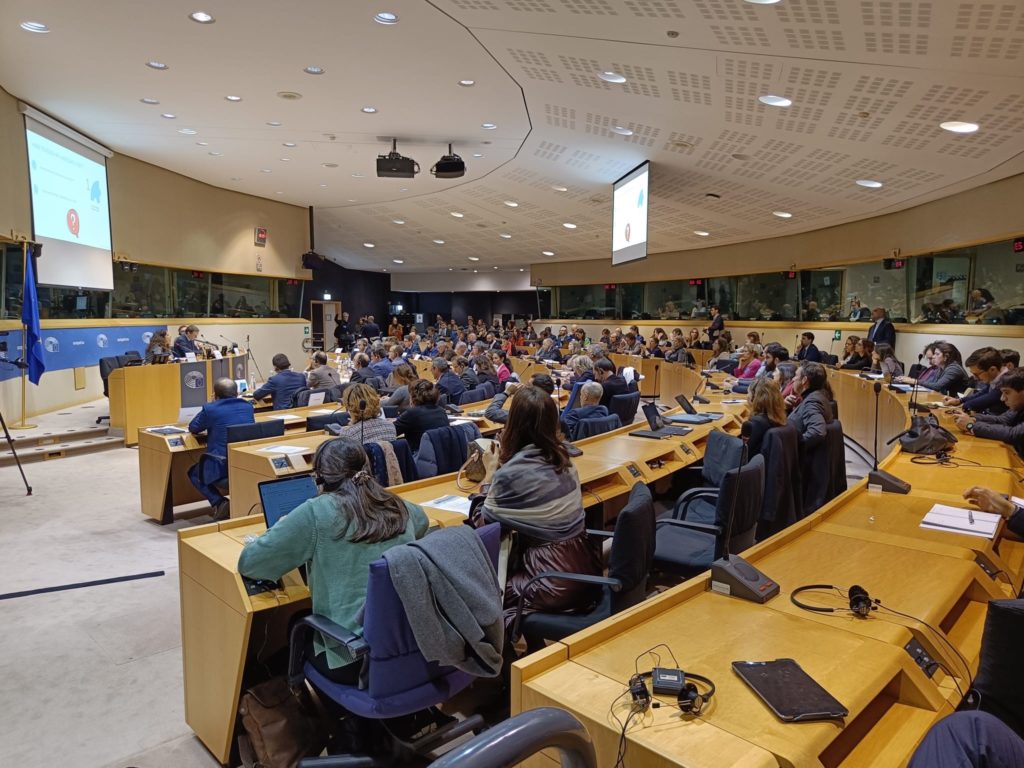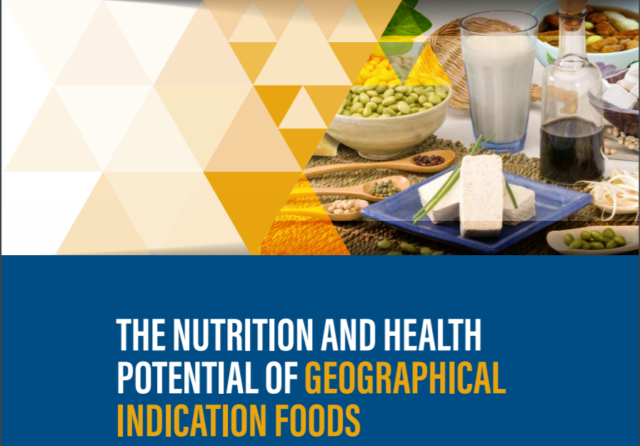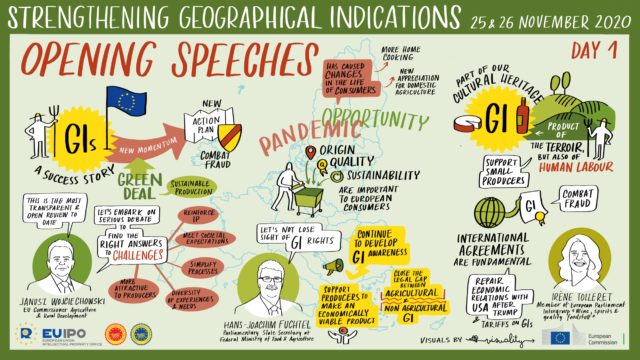
Fifteen European Regions[1] from Italy, Greece, Spain, France, Finland, Portugal, together with AREPO, whose Secretary General, Mr Laurent Gomez, moderated the event, have joined their forces to organise a workshop with the title “FRONT-OF-PACK NUTRITION LABELLING: WHICH IS THE BEST APPROACH?”.
Hosted by the Italian MEP Paolo De Castro at the European Parliament on November 30th, the meeting aimed at discussing with Members of the European Parliament the approaches the new Front-of-Pack Nutritional Labelling (FOPNL) European legislation should consider to fulfil the expectation of informing rather than influencing consumer choices for a healthy and balanced diet.
Represented by their competent Regional Ministers, the European Regions shared their concerns about the impact that European Legislation may have by simplifying relevant food information on the qualities of a specific food or drink. Particularly, if it is done without providing truly valuable information on healthy nutritional behaviours that consumers should assume, which could be the case with the Nutri-score labelling system.
Summarizing the value of food in a traffic light approach may lead to the perception that basic food such as milk, meat, oil and the like are worse if compared with processed products created in laboratories, which can rebalance the composition of the product to fit the algorithms behind the traffic light requirements. This can be a powerful tool in the hands of large-scale retail and food industries and an unfair method for primary producers and fresh ingredients to be cooked at home.
The event offered several contributions also from the scientific community and producers.
Professors Daniela Martini (University of Milan) and Frédéric Leroy (Free University of Brussels) shared their most recent findings about the role that labelling should play in improving consumers’ nutritional skills and awareness.
The agrifood sector was represented by the Roquefort Confederation, Agrifood Cooperatives of Spain, a cheese producer from Greece and Copa-Cogeca, the European Farmers and Cooperatives Association.

The Regions are convinced that a well-informed consumer is the one who receives a proper dietary education.
Public institutions should promote it in schools and in any other place that can offer opportunities for people to learn about appropriate and healthy diets, which have to be adequate to their specific life style and needs (eg. elders, athletes, youngsters, etc.). Any nutrition labelling requirement should be an additional tool to help the consumer in making the appropriate choice without generating unfair biases or advantages to specific actors along the food value chain.
In the spirit of an open dialogue and to assure that regional perspectives can be part of the current inter-institutional reflections, Ms Ariane Vander Stappen, Deputy Head of Unit at European Commission DG SANTE, participated to the meeting to represent the office that is leading the drafting of the legislative proposal.
[1] Alentejo, Andalusia, Catalunya, Crete, Emilia-Romagna, Friuli Venezia-Giulia, Lombardia, Occitanie, Piemonte, South Ostrobothnia, South Tyrol, Thessaly, Toscana, Veneto, Western Macedonia.








